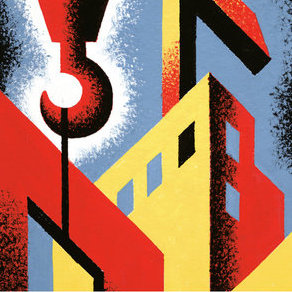On the first day of my senior year of college, a professor of mine opened up class with the question, “Why do we think we’re better than people who work at McDonalds?” And my mind went completely silent for a moment and then went very loud.
See, how could I not think I was better than some bozo working at McDonalds? I was a senior double majoring in Chemical Engineering and Public Policy at CMU – a way I could introduce myself and people would be impressed with my presumed intelligence and scholarly ambition. I was proud, thinking I had earned people’s impressed noises, their comments of “you must be really smart” and “you’ll be able to write your own paycheck with that diploma.” In high school, my friends and I would make the classic judgments of our peers who didn’t go to impressive universities, “they’ll be asking us ‘do you want fries with that?’ someday” or “they’ll end up at Walmart like the rest of the IUP kids.” Or while at CMU, those of us in the “harder” majors would make fun by calling the humanities college H&SS, “H and Less Stress.” These moments flashed through my mind in quick succession.
See, the thing is, I thought I wasn’t the kind of person who considers myself better than other people. However, after my flashback reel of moments of judging fast-food workers and state school students, I realized I did consider myself better, simply because I was going to a fancy-pants school and studying a fancy-pants major. I realized I bought into society’s belief that being smart and going to an impressive school and getting an impressive job to make a lot of money is what makes me a respectable person, and if other people don’t achieve this, it is their fault and they don’t deserve respect. And it looks unhinged, written out like that, but these concepts were planted in my brain by society and media and my peers and my teachers and simply everyone, and I never questioned it. Dr. Scott Sandage’s question forced me to criticize my biases. Despite growing up in a blue collar household which sometimes struggled to put food on the table, I had internalized this classist rhetoric, and I was absolutely smacked in the face with my hypocrisy. If I was going to continue to think of myself as a good person who respected others, I was going to have to unlearn this shameful bias I discovered in myself.
There isn’t a week that goes by without me thinking about the lessons I took from the course – the most important of which is that in a just society, all work would dignify the person with just wages, hours, and actions. From jobs society considers unimpressive, like grocers or trash collectors or yes, even McDonald’s workers, to those society does consider impressive, like financial investors, engineers, or doctors, all labor is worthy of respect simply because a person is part of the larger collective and performs tasks beneficial to society.
I leave you with the second essay I wrote for the course, analyzing Henry David Thoreau’s Walden, and Max Weber’s The Protestant Work Ethic. It contains the discovery that changed the rest of my life; a vocation is not a call to do, but is a call to be. The important part is not necessarily what job someone has, but how they behave while doing it: a person’s actions and beliefs are the truest test of respectability.
Note: This essay talks about my Roman Catholic faith, and is not intended to be an endorsement of religion or beliefs on behalf of Winchester Thurston.
This essay encapsulates a turning point in my life. As a senior in college, I intended my life to be very different from what it is now. This essay details my discovery that I didn’t have to live on autopilot, cruise controlling through society’s race. This class challenged me to change how I thought about economic systems and the experience of others in these systems. It challenged me to be self-critical of my internalized biases and change my actions to align with my beliefs. It challenged me to examine how I show up in my community. It did everything a humanities course should do: it challenged me to be more human.








